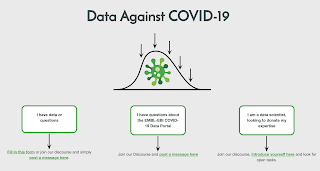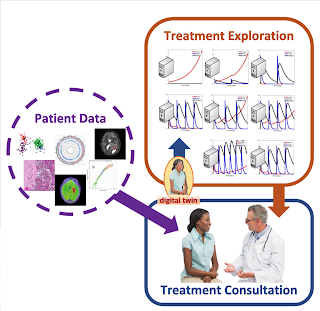Health Datapalooza’15
Photo
Photo Credit: Health Data Consortium
It was a treat to all data
enthusiasts alike! What started out five years ago with an enlightened group of
25 gathered in an obscure forum has morphed into Health
Datapalooza which brought 2000
technology experts, entrepreneurs and policy makers and healthcare system
experts in Washington DC last week. “It is an opportunity to transform our
health care system in unprecedented ways,” said HHS Secretary Burwell during
one of the keynote sessions to mark the influence that the datapalooza has had
on innovation and policy in our healthcare system. Below are my notes from the
3-day event.
Fireside
chats with national and international leaders in healthcare and data science
were a major attraction. U.S. Chief Data Scientist DJ Patil discussed the dramatic
democratization of health data access. He emphasized that his team’s mission is
to responsibly unleash the power of data for the benefit of the American public
and maximize the nation’s return of its investment on data. Along with Jeff
Hammerbacher, DJ is credited to have coined the term data
science. Most recently, DJ has held key positions at LinkedIn, Skype,
PayPal and eBay. In Silicon Valley style, he said that he and his team are
building a data product spec for Precision Medicine to drive user-centered
design, he quoted an example of such an app, which will provide
allergy-specific personalized weather based recommendations to users. Health
meets Climate!
Responsible and secure data sharing of
health data is not just a “nice to have” but is becoming a necessity to drive
innovation in healthcare. Dr. Karen DeSalvo, the Acting Assistant Secretary for
Health in the U.S. Department of Health and Human Services, is a physician who
has focused her career toward improving access to affordable, high quality care
for all people, especially vulnerable populations, and promoting overall
health. She highlighted the report on Health information blocking
produced by the ONC in response to Congress’s request. As more fully defined in
this report, information blocking of electronic healthcare data occurs when persons
or entities knowingly and unreasonably interfere with the exchange or use of
electronic health information. The report produced in April lays out a
comprehensive strategy to address this issue. She also described early
successes of mining of social media data for healthcare describing the use of Twitter to predict Ebola outbreak. Lastly, she
shared a new partnership
between HHS and CVS on a tool that will provide personalized,
preventive care recommendations based on the expert recommendations
that drive the MyHealthFinder, a tool
to get personalized health recommendations.
There was no shortage of exciting
announcements including Todd Park’s call for talent by the U.S. Digital
Service to work on the Government’s most pressing data and technology problems.
Todd is a technology advisor to the White House based in Silicon Valley. He
discussed how the USDS teams are working on problems that matter most - better
healthcare for Veterans, proper use of electronic health records and data
coordination for Ebola response. Farzad Mostashari, Former National Coordinator for Health IT, announced the new petition
to “Get my
Health Data” – to garner support for easy
electronic access to health data for patients. Aaron Levine, CEO of Box
described the new “platform” model at Box to store and share secure,
HIPAA-compliant content through any device. Current platform partners include
Eli Lily, Georgetown University and Toyota among others.
An innovative company and site ClearHealthCosts, run by Jeanne Pinder, a former New York Times reporter for 23 years, caught
my attention among software product demos. Her team’s mission is to expose
pricing disparities as people shop for healthcare. She described numerous
patient stories including one who paid $3200 for an
MRI. They catalog health care costs through a crowdsourcing approach with patients
entering data from their Explanation of benefit statements as well as form
providers and other databases. Their motto – “Patients who know more about the
costs of medical care will be better consumers.”




Comments
Post a Comment